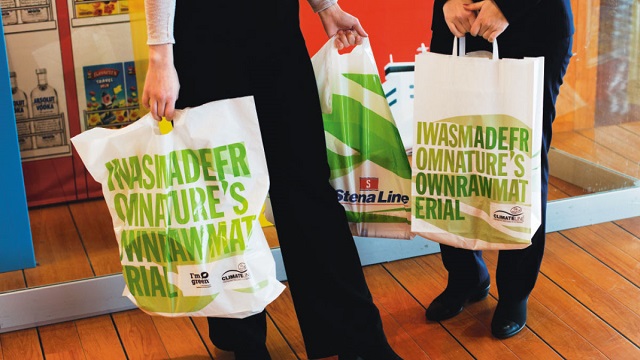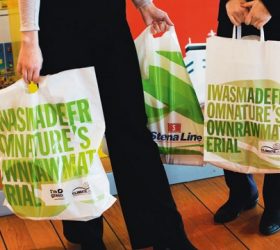Stena Line continues to deliver on its ambitious sustainability strategy. 15% lower sulphur emissions, reduced plastic onboard and a decreased number of accidents among the seagoing staff are just some of the results highlighted in its yearly overview… A Sustainable Journey.
 Stena Line is on an innovative journey to become a leader in sustainable shipping. Its yearly overview A Sustainable Journey analyses how Stena Line delivers on the ambitious sustainability targets it presented in 2016. A Sustainable Journey also highlights sustainability activities from across the Stena Line network in 2017. Stena Line’s sustainability strategy is based on the UN sustainable development goals which have four main focus areas. Clean Energy, Responsible Consumption, Life below Water and Health & Wellbeing.
Stena Line is on an innovative journey to become a leader in sustainable shipping. Its yearly overview A Sustainable Journey analyses how Stena Line delivers on the ambitious sustainability targets it presented in 2016. A Sustainable Journey also highlights sustainability activities from across the Stena Line network in 2017. Stena Line’s sustainability strategy is based on the UN sustainable development goals which have four main focus areas. Clean Energy, Responsible Consumption, Life below Water and Health & Wellbeing.
“As one of the world´s leading ferry shipping companies, with over 28 000 sailings per year across ferry routes, we have a large responsibility to do our best to perform all of our operations in a sustainable manner. We are constantly taking small and big steps towards becoming a leader in sustainable shipping and we are happy to present this year’s overview which clearly shows that Stena Line is continuing to deliver on its ambitious targets,” says Erik Lewenhaupt, Head of Sustainability at Stena Line.
Main achievements within sustainability during 2017:
- Clean Energy:
- 15 % lower sulphur emissions per nautical mile.
- 2.1 %lower CO2 emissions per nautical mile.
- New installation of shore side electricity on two vessels in the Port of Trelleborg.
- Responsible Consumption:
- Reduced plastic disposables by decreasing the number of plastic bags sold onboard by 15 % and as well as change-over to a fully recyclable bio-plastic bag made from sugar cane
- Reduced the total amount of waste by 8% as well as an increase in the amount of waste going to energy recovery and recycling instead of landfill
- Development of a new Stena Line supplier standard
- Life Below Water:
- Doubled the use of gentle Ecolabel detergents onboard 38 vessels
- Tested new anti-fouling techniques including ultra sound to reduce friction
- Upgraded our ISO14001 certification to 2015 standard with a new wider scope
- Health & Wellbeing:
- Continued the positive trend on lowering the number of accidents in the workplace for seagoing staff and reduced LTIF (Lost Time Injury Frequency) from 1.6 in 2016 to 0.6 in 2017.
- Passenger safety campaign to further improve the focus on passenger safety
- New policies for Anti-Harassment and Equal Opportunities implemented.







